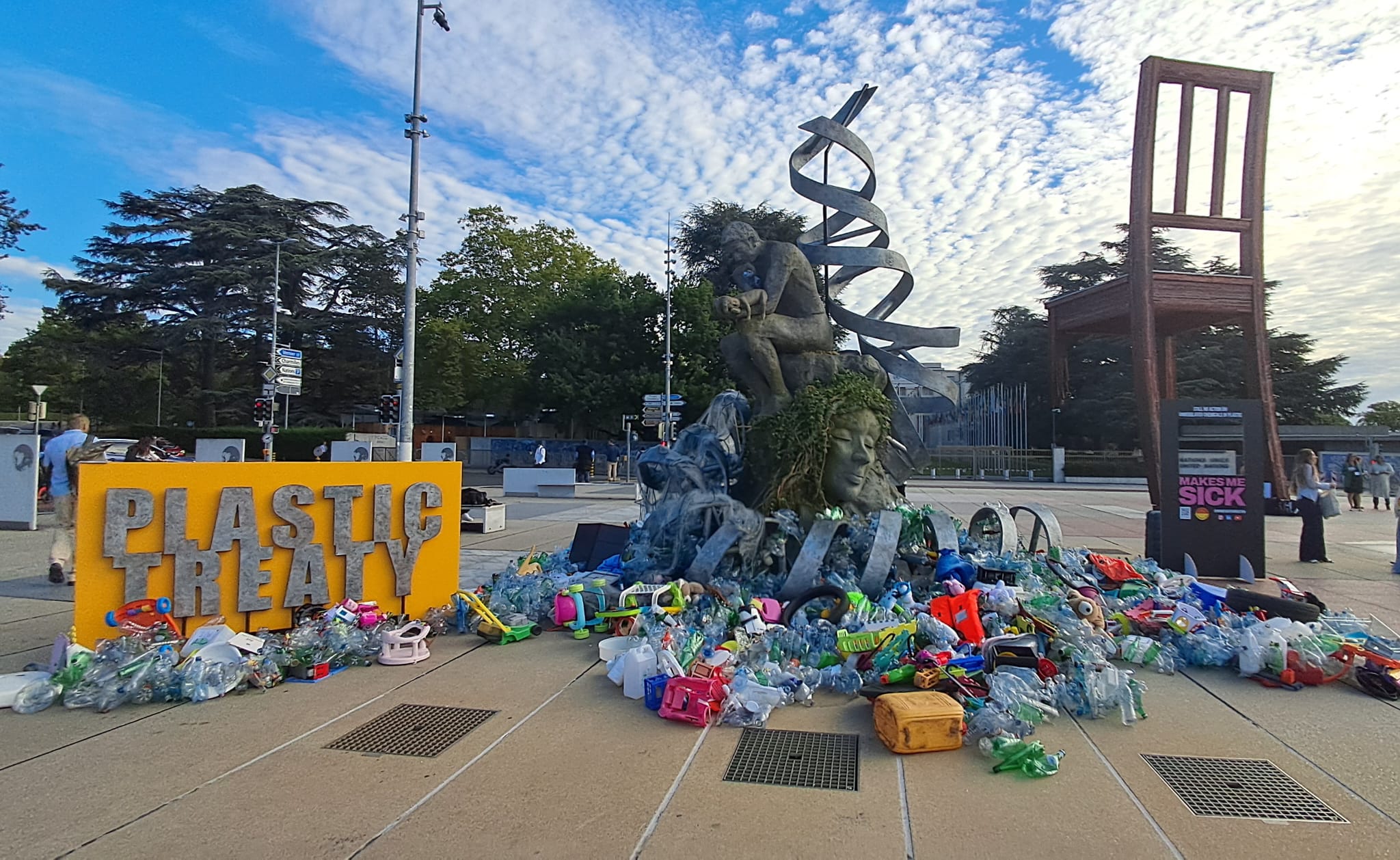A global Plastics Treaty stalls, but cities can push ahead
Written by Dr Magash Naidoo, Head of Circular Development, and Yunus Arikan, Director of Global Advocacy, both at ICLEI World Secretariat.
Going into the continued fifth and last round of negotiations, the vast majority of people involved in the plastics process that we interacted with were hopeful and fairly confident that a deal would be reached in Geneva.
While we now know the fate of INC5.2 – but all is not lost.
ICLEI has focused on the possibilities to eliminate plastics pollution, from a responsible, entire value-chain perspective – while also addressing chemicals of concern, just transition, and a whole of government and society approach, amongst other important elements.
It is important to understand and dissect what has taken place to inform next steps, and regardless of the limitations, we will keep our focus and momentum on eliminating plastic pollution.
Here are four main takeaways for local and other subnational governments worldwide, bearing in mind the immense volume of plastic waste generated daily in cities.
- With or without a global Plastic Treaty, decentralized efforts need to be made to eliminate plastics pollution. We have seen a lot of advocacy that highlights the harmful nature of plastics not only for the environment but also marine and human health. This needs to be translated into actionable interventions that result in the substitution of more sustainable materials ,especially for easy to replace plastics, such as single-use plastics.
Interventions from local and subnational governments to eliminate plastic pollution must continue, and be scaled. While national governments are the custodians of many elements of the regulatory environment that will be utilized for overcoming plastics pollution, local and subnational governments also have a policy toolbox, developed by ICLEI’s Circular Development team, at their disposal that can be utilized to stimulate a bottom-up push. Many of these policy levers can be utilized with relatively low barriers to implementation.
Two good examples of local government initiatives come from ICLEI’s newly launched ‘City Practitioners Handbook: Reuse Starter Kit for Food and Beverages’.
- The City of Freiburg, Germany, launched the Freiburg cup, a reusable coffee cup scheme in partnership with over 100 local cafés and bakeries. Customers can purchase the cup for a small deposit and return it at any participating location. The city supported the rollout by standardizing the design, raising public awareness, and collaborating with local businesses to ensure accessibility and hygiene. The system has reduced litter in Freiburg and significantly.
- In 2023, Quezon City, Philippines, launched a local ordinance requiring malls, food outlets, and commercial buildings to promote reusable containers for dine-in and takeaway. The city provided technical guidance, ran a public education campaign, and piloted reuse stations in cooperation with private sector partners. Early results showed reduced packaging waste in pilot zones and increased acceptance of reuse among consumers. By embedding reuse into local regulations and service design, the city created momentum for long-term behavioral and business shifts.
- From a technical point of view, it is not clear how the fifth round of negotiations has concluded. While we do not know what form the subsequent negotiations will take, we urge all member states to reconvene the negotiations as soon as possible. It should be noted that global negotiations for a binding agreement on plastics pollution was kicked-off by the decision of the 2nd session of the 5th UN Environment Assembly (UNEA5.2) in 2022. Therefore, we further urge the 7th UN Environment Assembly (UNEA7) in December 2025, to take the lead in reenergizing the process.
- In the anticipation that a globally binding and overarching agreement on plastics pollution may not be designed in the next couple of years, other related intergovernmental processes, especially on climate, waste, chemicals, energy and health should be recalibrated, so that through their respective mandates, new and effective legal and multilateral mechanisms against plastics pollution are introduced as quick as possible.
- ICLEI coordinates the Local and Subnational Governments Coalition to End Plastics Pollution, with the Governments of Quebec and Catalonia, Global Cities Hub, and United Cities and Local Governments. At this point, 108 governments have signed up to the Coalition with the latest signatory being the City of Marseille, France. We urge all local and subnational governments to join the Coalition.
Apathy and choosing to not take immediate action to eliminate plastic pollution will only make rectifying the crisis infinitely more difficult at a later stage. Millions of tons of plastics pollution will continue to flow into the natural and built environments – local and other subnational governments need to take the bold steps global leaders have not been able to make yet.







